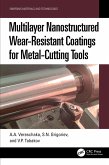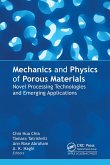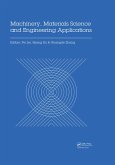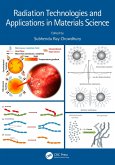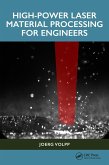The optimization of an engineering material's properties and behavior is vital for economic, safety and quality assurance reasons when these materials are applied in various industrial settings. This book therefore explains how laser cladding can be used to tailor and control a material's surface layer properties, such as its elastic and plastic deformation and permanent detachment in the form of debris during the contact of mating parts. Through individual chapter contributions from experts in various elements related to laser cladding, this book guides readers through the evaluation of different structures in laser-cladded engineering materials. The book addresses three key questions:
- What is the influence of micro- and nano-level structures on mechanical properties?
- How does laser cladding improve a material's wear resistance at the micron and nano level and determine the material's suitability for particular applications?
- What challenges are related to the laser cladding of different engineering materials?
In addressing these questions, the book enables readers to determine the metallurgical, mechanical, tribological and corrosion behavior of any type of engineering material. Readers will also be able to make informed decisions based on their knowledge of the properties and industrial applications of different laser-cladded materials.
This book is essential for all manufacturing industry personnel who work with materials in various industrial settings and need to control their surface properties and enhance their behavior at the micron and nano levels. Students who are building experience prior to entering industry will also benefit from the detailed descriptions, step-by-step approach and focus on practical application.
Dieser Download kann aus rechtlichen Gründen nur mit Rechnungsadresse in A, B, BG, CY, CZ, D, DK, EW, E, FIN, F, GR, HR, H, IRL, I, LT, L, LR, M, NL, PL, P, R, S, SLO, SK ausgeliefert werden.




